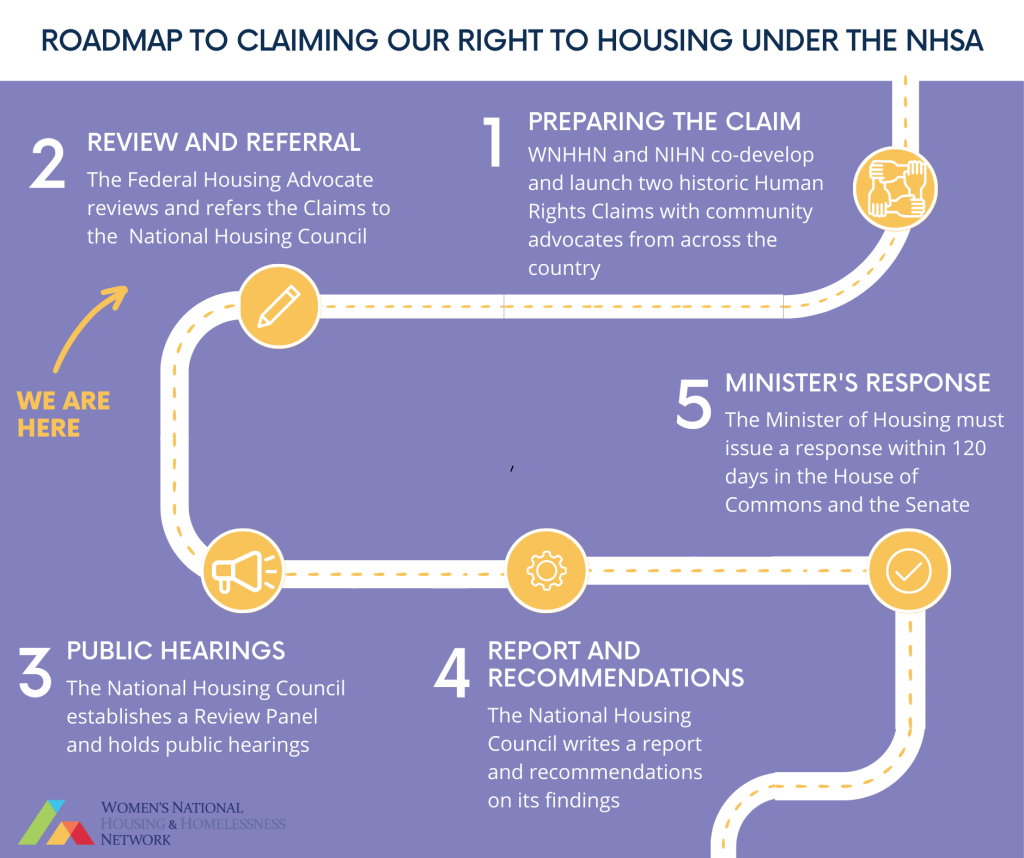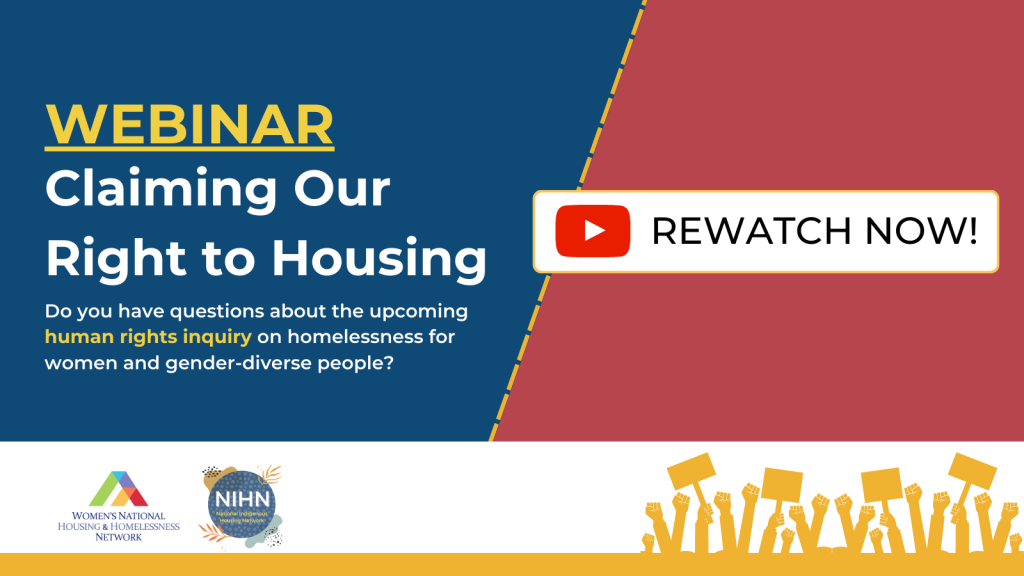For many years, advocates across Canada have been clear:
Homelessness is a policy choice.
Homelessness is a national disaster.
Homelessness is a human rights crisis.
But despite decades of political commitments, strategies, and action plans, homelessness continues to worsen. And it continues to worsen for women and gender-diverse people in ways that are distinct and disproportionate. The effects include sexual and physical violence, forced separation from children, profound health consequences, and in some cases loss of life. These realities are even more acute for Indigenous women, girls, Two-Spirit, and gender-diverse people, who continue to go missing and lose their lives because they are denied their human right to housing.
But today, something historic happened. Today we began a new human rights process to hold the Government of Canada accountable for these failures.
In Vancouver today, the Federal Housing Advocate directed the National Housing Council to establish a human rights review panel focused on the Government of Canada’s failure to prevent and end homelessness for women and gender-diverse people. Homelessness has reached such a crisis for women and gender-diverse people that the Federal Housing Advocate now recognizes it as one of the top human rights issues in Canada.
The Advocate’s action is based on two powerful Human Rights Claims developed by rights-holders across the country, led by the Women’s National Housing and Homelessness Network (WNHHN) and the National Indigenous Housing Network (NIHN). We are ecstatic to see our Claims moving forward, and emphasize that lived experts must be at the forefront of this historic human rights process to hold the Government of Canada accountable for realizing the right to housing in this country.
What is this new human rights process?
In 2019, the Government of Canada established the National Housing Strategy Act (NHSA), through which housing was recognized as a human right in federal legislation for the first time. This legislation created new human rights tools to hold the Government accountable. These tools enable the Federal Housing Advocate to request review panels on systemic housing issues that affect people across the country (which are conducted by the National Housing Council).
The National Housing Council uses review panels to examine a particular housing issue and propose recommendations to the Government of Canada. People across the country – particularly women and gender-diverse people with lived/living experiences of homelessness – are invited to participate in this important human rights process. Individuals and groups can submit written testimony to the panel, or can testify at public hearings held on the issue. Following the hearings, the review panel will analyze all evidence and prepare a report with recommendations that will be submitted to the Minister of Housing.
The good news: The Minister is required to respond to the report within 120 days, and table his response in the House of Commons and the Senate. This means that the Government of Canada can’t simply ignore the issues raised – the evidence must be addressed.

Why does this process matter? Will it make a difference?
Many of us now view new policies, legislation, and accountability mechanisms with skepticism. We see politicians cutting ribbons and governments releasing new housing strategies, but we still don’t know how we’ll afford next month’s rent. In the midst of this severe housing crisis, it is fair to ask: will this review panel even make a difference?
Here are four reasons this process matters:
- The voices of rights-holders are at the forefront of this process. Your testimony and expertise will directly inform policy recommendations and solutions.
- The Minister of Housing must respond to the recommendations from the National Housing Council within 120 days, and table that response in the House of Commons and the Senate. This means that the Minister can’t ignore the recommendations (as can happen with research reports), and these recommendations can inform important policy changes.
- It will create a public record of the human rights violations being experienced by women and gender-diverse people who are homeless. This database can collectively be used to build legal cases and advocacy campaigns in the future.
- We can use the recommendations from the National Housing Council to pursue justice at the international level, including through the United Nations system.
What happens next?
The next step is for the National Housing Council to officially announce they intend to proceed with the review panel. In the coming months, the review panel will invite people across Canada to provide written and oral submissions for their review. Your voice is needed! Join our mailing list to stay up to date on this human rights process.
How can I get involved?
In the coming months, the WNHHN and NIHN will be organizing across the country to support evidence-gathering from people with lived/living experience homelessness and their allies to participate in this exciting human rights process. Here’s how to get involved:
- Watch our informational webinar to learn about the human rights process and how to get involved
- Invite us to attend a meeting with your group, organization, or agency! We can provide an overview of the process and how you or your group can get involved. Contact us at .
- Join our mailing list and follow us on social media to stay up-to-date!


